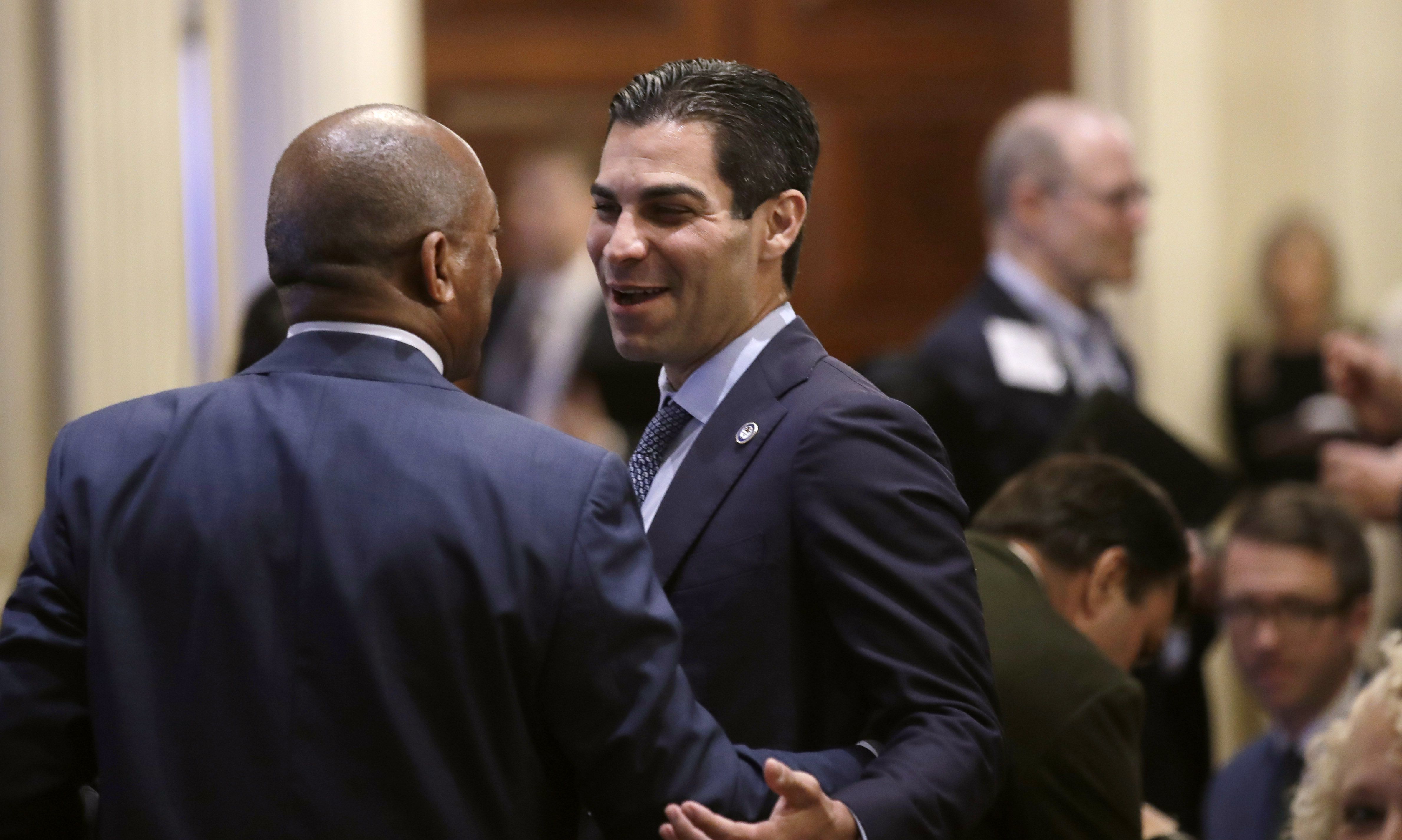Miami • Last Thursday, I learned that I had been in the same room as someone who had tested positive for COVID-19. When I got my own results a day later, I experienced a wave of anxiety, doubt and fear. My mind raced: What does this mean for me? How will my body react? How will this affect my city and those who may have come into contact with me? For a moment, the uncertainty felt crippling.
My wife and children went to stay with family, while I hunkered down in our home. I speak with them daily through FaceTime, but I can’t hug or kiss them. The hardest part is not being able to be with them during these uncertain times. Fortunately, I have experienced little to no symptoms.
The challenge has now become how to lead the city remotely and ensure that the wheels of government keep turning. My duties typically involve lots of physical interactions with city residents. With that no longer possible, the dynamic of my job has changed immensely, requiring my staff and me to be creative in how we work.
The coronavirus has paralyzed the world in a way most of us have never seen in our lifetime. It’s chilling. We’re learning how to practice social distance, to self-quarantine, to interact remotely. It’s just not something we’re used to.
Even before Miami had any confirmed cases, we canceled mass gatherings like Ultra Music Festival on March 6. Shortly after the city declared a state of emergency last Thursday, I went into self-quarantine. As of today, there are more than 300 confirmed cases of COVID-19 in Florida. According to state health officials, seven have died from the virus. South Florida currently has the highest concentration of cases in the state.
Far too many did not take this crisis seriously. Some of our city’s bars and restaurants were still busy. That’s why on Tuesday morning we announced that restaurants, bars, nightclubs and other places where people congregate would be closed by midnight in an effort to slow the rate of infection. This is not the time to shop for nonessentials, visit friends, attend parties, or work out at the gym. While this may seem inconvenient in the short term, it can make all the difference in the long run. We must practice social isolation now to flatten the curve.
We all are responsible for helping to control the spread. Everyone must do his or her part, including young and healthy people who could be asymptomatic. By following CDC guidelines, practicing social isolation, exercising good hygiene and avoiding crowds, we can save lives. But we must all commit to this.
I never expected to contract this virus, but in an odd way, I’m glad I did. As one of the few public officials in the country to come forward as testing positive for COVID-19, I have a rare opportunity to put a face to this virus, to shed much-needed light about what it’s like to live with it, and bring a sense of calm to my city’s residents.
In an effort to dispel myths around coronavirus, I am posting daily video diaries that show the progression of my infection. My hope is that these videos can serve as a source of comfort to people who think this virus is nothing less than apocalyptic.
Coronavirus has shown us how much we depend on one another. This is a time for both personal and corporate responsibility, not a time to put our health on the line for the bottom line.
Our city will get through this. But our actions now will determine how quickly and how great the damage will be. The sooner we practice social isolation, the sooner we will return to normal life. In the meantime, I will continue to do my part by leading my city remotely and by sharing my experience.

Francis Suarez is the mayor of Miami.
from The Salt Lake Tribune https://www.sltrib.com/opinion/commentary/2020/03/19/francis-suarez-im-mayor/

إرسال تعليق